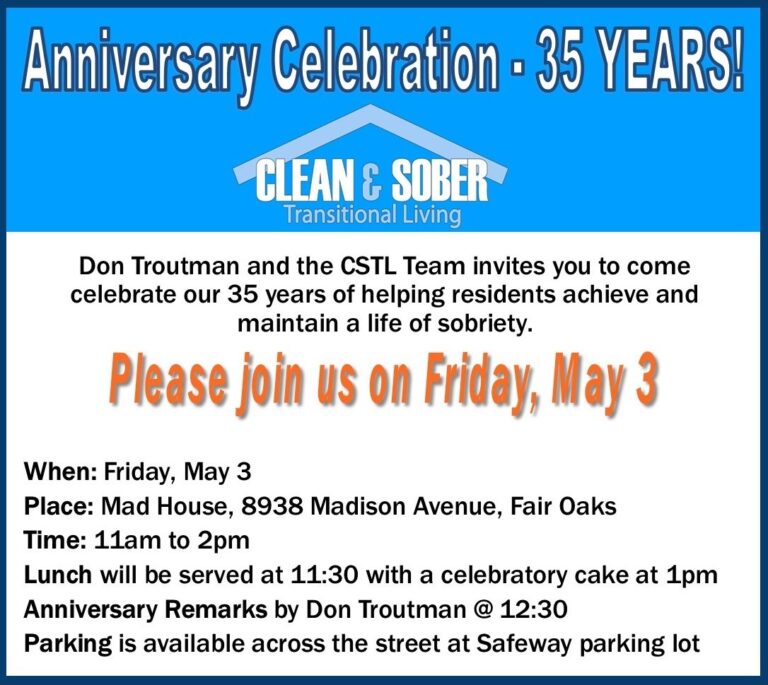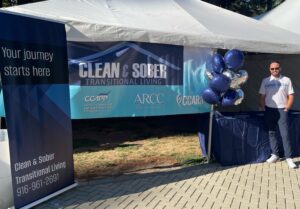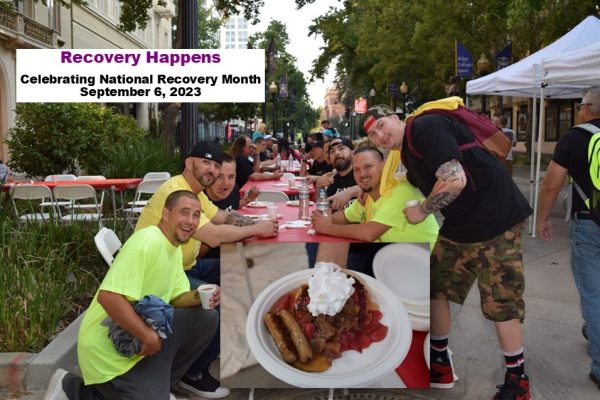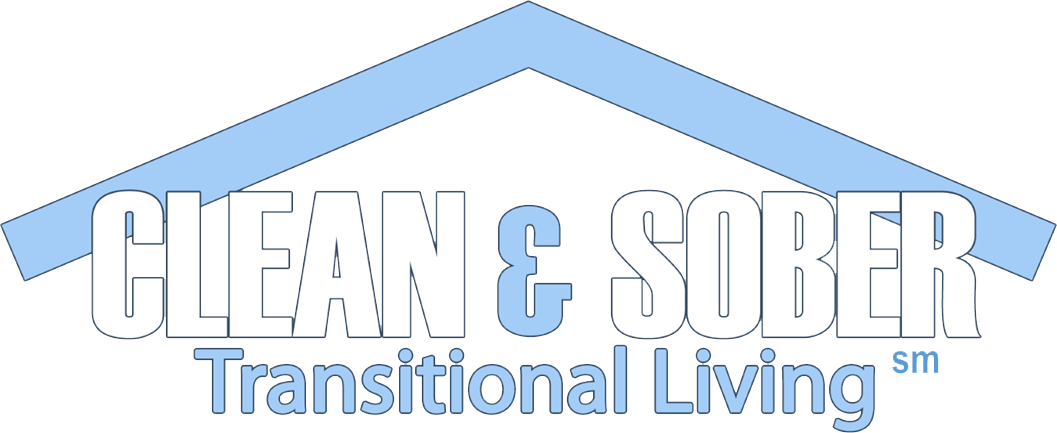News and Events

Celebrating 35 Years of Helping People Through Community
In April CSTL will mark the milestone of 35 years of helping people get clean and sober long term in our system of recovery. One of the foundational aspects of CSTL program is a community lifestyle. We believe a community approach to achieving long term sobriety is critical. The following are examples of how CSTL offers and supports our community:
- Support groups: Regular meetings with groups like Alcoholics Anonymous (AA) or Narcotics Anonymous (NA) provide accountability, understanding, and encouragement from peers who are also committed to sobriety.
- Fitness and wellness programs: Exercise and healthy living can be powerful tools for maintaining sobriety. Many of our residents join local gyms and fitness centers.
- Volunteer work: Engaging in volunteer activities not only helps others but also gives individuals in recovery a sense of purpose and fulfillment, reducing the risk of relapse.
- Sober social events: Organizing or attending sober social events, such as movie nights, game nights, or outdoor activities, provides opportunities for connection and fun without the pressure to drink or use substances.
- Spiritual or mindfulness practices: Engaging in spiritual or mindfulness practices, such as meditation, yoga, or prayer groups, can promote inner peace, self-awareness, and resilience in recovery.
- Peer mentoring programs: Pairing individuals in recovery with peers who have successfully maintained sobriety for an extended period can provide valuable support, guidance, and encouragement.
By participating in these activities within a supportive community setting, individuals in recovery can build a strong foundation for long-term sobriety and overall well-being.ark the milestone of
Oldest and Largest Transitional Program
CSTL is the oldest and largest transitional program in all of Sacramento. CSTL has revolutionized transitional living with an intentional living program and lifestyle. In a previous post we have explained the differences between Intentional Living and Sober Living programs.
Intentional living programs often emphasize a purpose-driven approach, helping individuals align their actions with their values. This can provide a stronger foundation for sustained sobriety by fostering a sense of meaning and connection, which may contribute to greater success compared to a standard sober living program that may focus primarily on abstinence.
CSTL has embraced this structure for almost 35 years complimented by a peer-to-peer driven organizational style.
In intentional living, a peer-driven approach can work well because it promotes a sense of shared purpose and accountability. Peers in such a setting often have similar goals and values, creating a supportive community where individuals hold each other accountable for intentional lifestyle choices. This shared commitment helps reinforce positive behaviors and fosters an environment where intentional living becomes a collective and empowering experience.
CSTL’s innovative approach to transitional living has helped over 7000 clients for over three decades!
Peer-to-Peer Benefits
Our founder, Don Troutman, created an intentional living program complimented by a peer-to-peer organizational structure. The combination of both philosophies has resulted in a unique and effective program that has helped over 7000 clients during our 35-year history. The following is an explanation of how intentional living, and a peer-to-peer organization can achieve outstanding results.
Peer-driven companies can be particularly successful in the addiction recovery space due to several reasons. First, the peer-driven approach often creates a strong sense of community and understanding among individuals facing similar challenges. This shared experience fosters empathy, support, and a non-judgmental environment, which are crucial elements in addiction recovery.
Additionally, the peer-driven model emphasizes personal connections and relationships, providing a robust support system for those in recovery. Peer support can be more relatable and inspiring, as individuals often find encouragement and motivation from others who have successfully navigated similar struggles.
Moreover, the decentralized and collaborative nature of peer-driven organizations allows for a more flexible and adaptive response to the diverse needs of individuals in recovery. This can lead to more effective and tailored interventions, increasing the overall success rates of addiction recovery programs.
CSTL Clients Stay Longer
Why do CSTL clients decide to stay at CSTL for much longer than the typical Sober Living Environment (SLE) programs? First and foremost, we do not have timetables for how long our clients can stay in our program. Our clients choose to stay longer to maintain their sobriety. Over 50% of our clients have been with CSTL for over a year, 25% over three years, and 17% over five years. These numbers are much higher than the average stay at other SLE programs.
Why?
Our founder Don Troutman created an “Intentional Living” approach versus a classic SLE model as described in the previous post. He also created a “for the peers, by the peers” organizational’ structure.
Our peer-driven organization has contributed to the client experience, long-term retention rates, and sobriety of our clients. Don’s vision of the combination of an Intentional Living structure and peer-driven organization has resulted in being the oldest (Celebrating 35 years in 2024) and the largest SLE type (134 beds) company in the greater Sacramento area.
The following is a summary of why we believe based on our experience a peer-driven organization can be very effective in the recovery space.
Peer-driven companies can be particularly successful in the addiction recovery space due to several reasons. First, the peer-driven approach often creates a strong sense of community and understanding among individuals facing similar challenges. This shared experience fosters empathy, support, and a non-judgmental environment, which are crucial elements in addiction recovery.
Additionally, the peer-driven model emphasizes personal connections and relationships, providing a robust support system for those in recovery. Peer support can be more relatable and inspiring, as individuals often find encouragement and motivation from others who have successfully navigated similar struggles. Our entire management team has personally experienced our program and can relate that experience to our clients.
Moreover, the decentralized and collaborative nature of peer-driven organizations allows for a more flexible and adaptive response to the diverse needs of individuals in recovery. This can lead to more effective and tailored interventions, increasing the overall success rates of addiction recovery programs.
In summary, the emphasis on community, shared experiences, and personalized support makes a peer-driven approach well-suited for the complexities of addiction recovery, contributing to the overall success and longevity of CSTL!
From Bill Templeton, Formerly CEO of The Money Store
As a former CEO, I have always been impressed and respectful of Don Troutman’s unique approach to building CSTL into the premier company in the recovery space. From a peer-driven flat organization to creating an “intentional living “ approach to achieving long-term sobriety, Don’s innovation has separated us from the classic sober living model and companies.
While I understood the concept of intentional living, I never understood how it worked, and therefore, I conducted some research to educate myself better.The following is a summary of that research that I hope you find as enlightening as it did for me as to the power intentional living can have in changing lives.
Intentional living arrangements can be effective in maintaining long-term sobriety for several reasons:
- Alignment with Values and Goals: Intentional living encourages individuals to identify their core values and long-term goals. When sobriety is a central value, intentional living helps align daily choices and behaviors with this value, making it more likely that individuals will prioritize and maintain their sobriety.
- Personalized Approach: Intentional living is highly personalized, allowing individuals to tailor their living situation to support their recovery best. This might involve selecting a living environment that minimizes exposure to triggers or temptations related to substance use.
- Mindfulness and Self-Awareness: Intentional living promotes mindfulness and self-awareness, which can help individuals recognize and manage triggers, cravings, and stressors that could lead to relapse.
- Healthy Routines: Intentional living often includes establishing and maintaining healthy daily routines that support physical and mental well-being, reducing the likelihood of substance use.
- Social Support: Intentional living arrangements may involve being part of a supportive community or network of individuals who share similar values and goals, providing encouragement and accountability in maintaining sobriety.
- Goal Setting and Accountability: Intentional living can involve setting specific, achievable goals related to sobriety and holding oneself accountable for progress, which can be essential in maintaining recovery.
- Positive Reinforcement: By intentionally creating an environment that supports sobriety, individuals receive positive reinforcement for their commitment to recovery, making it more likely that they will continue the path of sobriety.
- Emotional and Psychological Well-Being: Intentional living can also encompass aspects of emotional and psychological well-being, addressing underlying issues that may contribute to substance use and offering healthier coping mechanisms.
Overall, intentional living empowers individuals to take control of their living situation and make purposeful choices that are conducive to maintaining long-term sobriety. By incorporating sobriety as a central value within this framework, individuals can create a lifestyle that supports their commitment to recovery and minimizes the risk of relapse.
Our Clients Love Us
Don’t take our word for it, it’s what our clients are saying by their words and actions. Over 55% of our current residents have been living with us for over 1 year! Over 25% have been with us over 3 years and 15% more than 5 years!! Our clients believe in Clean and Sober and its system to achieve and maintain long-term sobriety.
Our founder, Don Troutman, has evolved Clean and Sober Transitional Living from just sober living to Intentional Living. Sober Living primarily deals with getting sober while in Don’s eye, Intentional Living is more long-term and focused on personal growth. Having residents that have achieved long-term sobriety is a role model for others and part of the basis that contributes to the long-term stays of our clients. Don believes that individual’s will take ownership of their accomplishments when given the freedom and ability to do so. Our intentional living structure supports those individual freedoms, all in alignment with the community goals of long-term sobriety and living up to an individual’s God-given abilities.words
Recovery Happens 2023 Huge Successs!
Last week’s Recovery Happens event at the State Capitol was a huge success with thousands of attendees, and Clean and Sober Transitional Living is extremely proud to have participated in the activities. We had 35 resident volunteers, some of which were up bright and early brewing the first pot of coffee at 3AM! And we served over 750 Pancake Breakfasts to the delight of the very enthusiastic crowd.
Every year we look forward to this Kickoff Event celebrating National Recovery Month. Next year’s event will be on September 4, 2024. Clean and Sober will be there as usual and we invite you to come join us.


CSTL and Recovery Happens 2023
We are hosting the Pancake Breakfast again!
Please join us for the FREE 31st Annual Recovery Happens at the State Capitol Park in Sacramento on September 6.
Every September since 1992, CCAPP sponsors National Recovery Month at the California State Capitol where thousands gather to increase awareness and understanding of mental health and substance use disorders and celebrate the people who recover.
Clean and Sober Transitional Living is an active participant in Recovery Happens and we are proud and excited to host the crowd-pleasing Pancake Breakfast once again. “We have been feeding the Recovery Happens attendees since the very first event, over 30 years now“ said Don Troutman, founder and owner of CSTL, “and we’re happy to do it again”.
The pancake breakfast is a huge favorite and has fed as many as 1800 participants during Recovery Happens. It is staffed by volunteers and alumni of Clean and Sober who enjoy being actively involved in the event. “As a chef, being able to feed others is a form of expressing and giving love. Being able to do this for others that have been through, or are going through, the same struggle I faced has become an integral part of my recovery and growth yearly. It feeds ME to be able to feed others!” said Jessica Falkenstein, a CSTL alumni.
Jessica has been involved in the Pancake Breakfast since achieving her sobriety in 2015. She has been spearheading the Pancake Breakfast since 2017, managing all activities and procurement as well as a staff of 15 to 20 volunteers.
After enjoying your breakfast, be sure to stop by our table and say hello.

